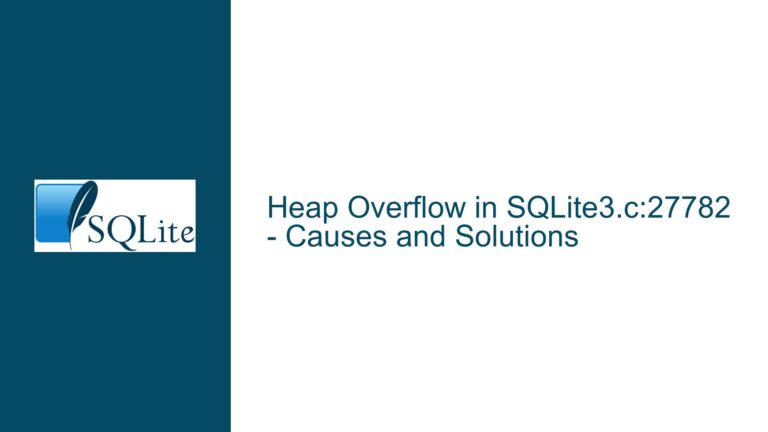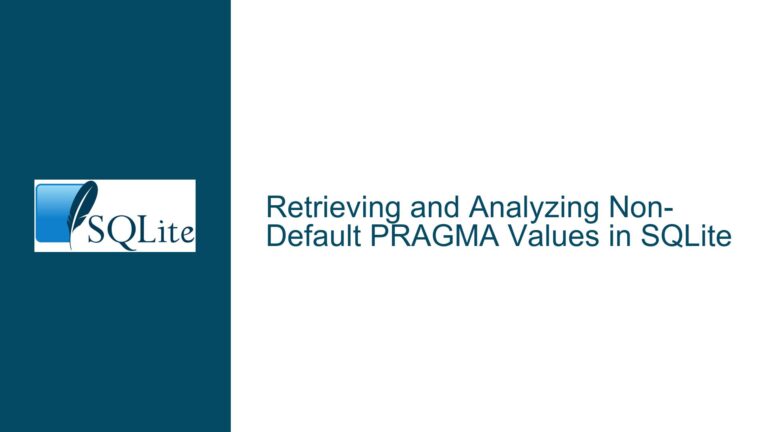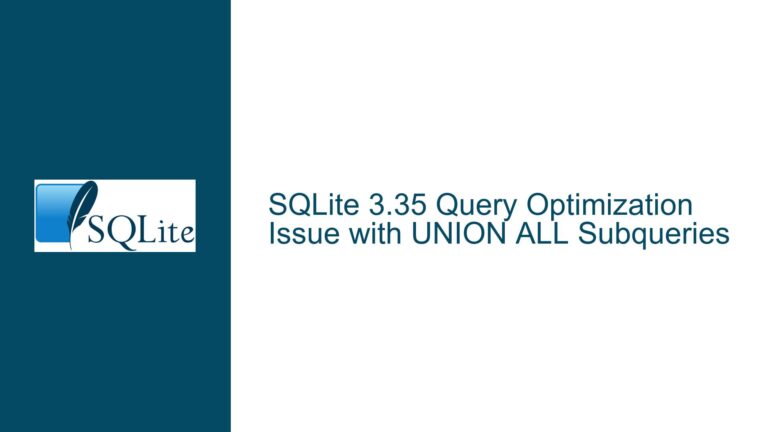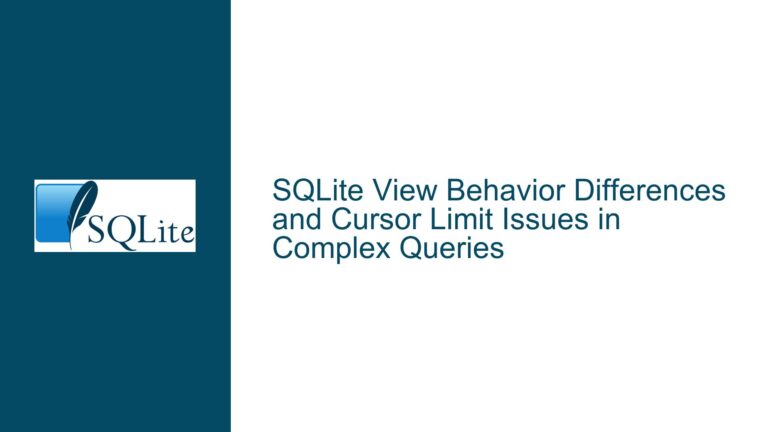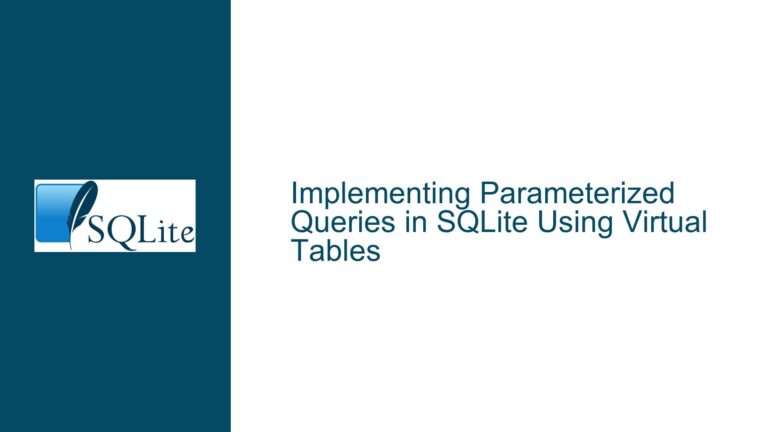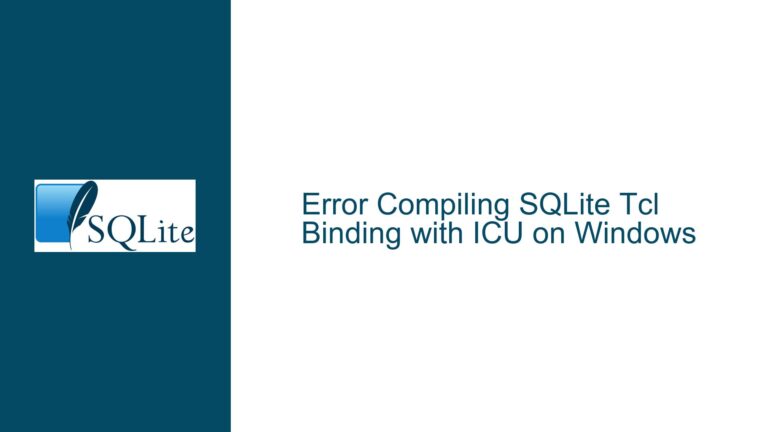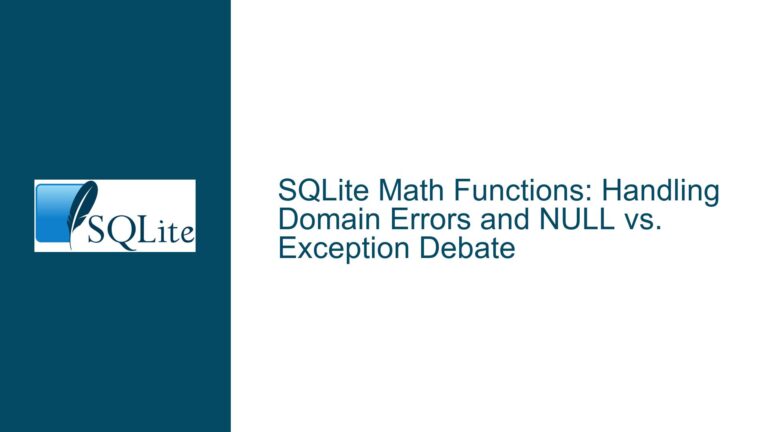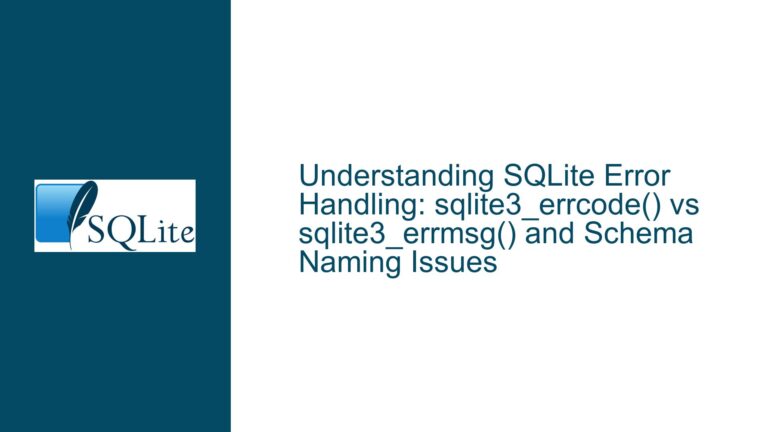Heap Overflow in SQLite3.c:27782 – Causes and Solutions
Heap Overflow in SQLite3.c:27782: Understanding the Issue A heap overflow is a critical issue that occurs when a program writes more data to a heap-allocated buffer than it can hold, leading to memory corruption. In the context of SQLite, a heap overflow can result in unpredictable behavior, crashes, or even security vulnerabilities. The specific line…
